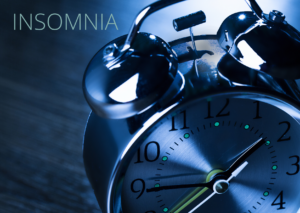Insomnia
Is your sleep elusive?
Sleep is so important for us and there are now many books written on the subject and importance of it. We spend about half our life in this state, and when we get the correct amount it has such a positive effect on one’s health. But, when sleep is elusive, as it is when one suffers from insomnia; it has such a major impact on us. It cannot only affect our mental health but our physical health too.
What is insomnia?
Insomnia is a common sleep disorder that can either mean the person has difficulty dropping off to sleep, difficulty staying asleep or cause one to wake up too early and not be able to return to sleep.
Sometimes it is not always obvious what triggers insomnia. There may be lifestyle factors that contribute such as stress, poor sleep habits, eating or exercising too late in the evening, or not sleeping at a regular time due to travel/ jetlag, or work commitments.
Things such as uncomfortable beds, alcohol, caffeine, nicotine or recreational drugs can be factors too. However, people can often suffer with insomnia due to medical reasons. Such as their medication, or conditions like chronic pain, sleep apnoea or restless leg syndrome.
Insomnia is often put into different categories:
- Short term acute insomnia – which can lasts for days or weeks, or
- Long-term chronic insomnia, this can last for a month or more.
- Onset insomnia – difficulty falling asleep
- Maintenance insomnia – inability to stay asleep
What are the Symptoms?
- Difficulty falling asleep at night
- Waking regularly during the night
- Waking too early and not being able to go back to sleep
- Not being rested after sleep
What mental health disorders & physical health issues does insomnia contribute to?
- Depression
- Anxiety
- Lack of concentration
- Frustration and anger issues
- Poor performance at work or in your home /social life
- Poor memory and judgement
- Lack of libido
- Shortened life expectancy
- Lack of confidence and belief in oneself
- Increased risk of:
- Hypertension
- Cardiovascular disease
- Obesity
- Heart attack and Strokes
- Diabetes
- Depleted Immune system
What can I do to help?
In short we need to work on lowering anxiety levels. You may be unaware of the stresses that are disrupting your sleep. And when you start pealing back the layers you often find simple little changes that can have a massive impact. We would work together and if you can keep an open mind you will often find that things begin to shift pretty quickly.
